Disappeared and disappearing professions

The world does not stand still - constant progress creates more and more new technologies and more sophisticated smart mechanisms. Development leads not only to the emergence of new specialties, but also to the gradual extinction or complete disappearance of old ones. In this article, we will look at professions that have disappeared without a trace, and those that may become obsolete in the near future.
Why is the disappearance happening?
Many occupations have become outdated - they have ceased to correspond to the needs of the people, now you can learn about them only from the pages of historical books. The main reason for the disappearance of specialties is scientific and technical inventions that simplify the work of people.... The greatest breakthroughs in technological progress are the creation of the internal combustion engine and the discovery of electricity. These inventions became the beginning of a large chain of events - the production and use of cars, airplanes, electric locomotives, trains, electric machines, lamps, industrial, household and electronic equipment began all over the world.

In the near future, our reality will be filled with new technologies: cars with an autopilot, 3D printing will reveal its potential, thanks to solar panels, the cost of electricity will decrease, and new energy-saving batteries will make it possible to create more environmentally friendly cars. In the future, all these events will lead to the fact that 50-60% of currently existing professions will become obsolete (within 15-20 years).
All this is still only speculation, but looking at the historical facts, you will be convinced that such statements have weighty arguments. In the last century, there were occupations that would seem strange and unnecessary for a modern person.At that time, there was an unusual routine work that was in demand and highly valued - no one would have thought that after a few decades it would sink into oblivion.
Nowadays, such classes are performed by advanced technological machines or computer programs - this marked the triumph of progress over an obsolete craft.
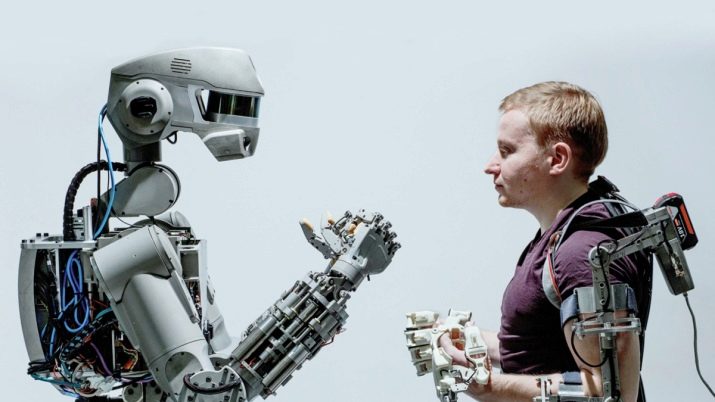
What professions have already disappeared?
The list of specialties that have disappeared and are completely outdated is quite long, in addition, it is constantly updated with new names. Let's take a closer look at some of the old professions that were previously at the peak of demand, but are now completely supplanted by progress.
Cab
The coachman was as popular in the 19th century as the taxi or public transport driver is now. In 1903, a lawyer was about to invest in the future famous company of Henry Ford... A friend of the lawyer tried to convince him that this idea was pointless. The friend was a rather influential person, but short-sighted, he believed that "the horse has always been and will be, and cars are just a changeable wind of fashion."
Most people agreed with the opinion of this man, because trains could not compete in mobility with carriages, and the first cars looked unreliable and even ridiculous. The cabbies were all the more reluctant to accept the new mode of transport, because this meant for them the loss of their jobs. Yet just a few decades later, the coachman position became one of many extinct occupations.
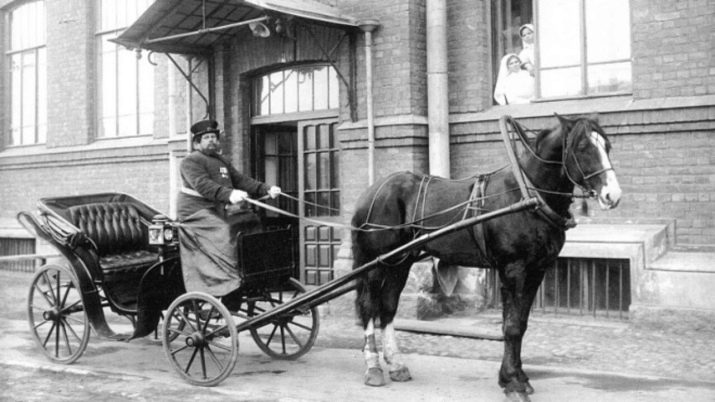
Kolesnik
A long time ago, such craftsmen were highly appreciated and respected, because they were engaged in the manufacture and repair of wheels for carriages, carts, carts, and also built the horse-drawn transport itself. Craftsmen were in great demand and therefore widespread - they were found in every city, village, town and village.
The existence of the wheeled vehicles was strongly influenced by the appearance of mass production - the products from the enterprises were of higher quality and inexpensive. The companies established optimal conditions for the manufacture of vehicles, and also used special electric machines, which greatly simplified and accelerated the process. Nowadays, carts and their components are practically no longer needed - they are used only on rare occasions at themed events or for the entertainment of tourists.
Only the numerous surnames and names of settlements that originated from this profession speak now of the former popularity of charioteers.
Coachman
One of the most forgotten specialties of the last century is a coachman, representatives of this craft were cabbies in the service of the state. The name of the work comes from the specific place of residence of the workers - these were small villages in pits that were built around post offices.
The duty of the employees was to ensure the fast transportation of correspondence, parcels, cargo and even important officials. The profile was needed only until the railroad appeared. At first, the trains created serious competition, and then completely ousted the coachmen from the labor market, because the movement on the railroad is much faster and more comfortable.
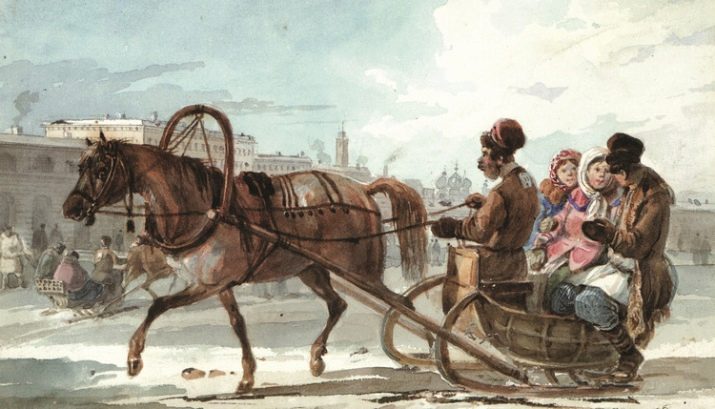
Lamplighter
Before electric incandescent lamps were invented, lamps with gas jets or candles were installed along city roads. Every day, when the sun was approaching sunset, the lampposts walked the streets and set the lanterns on fire with matches or a special kerosene lamp. The workers had to carry a cumbersome ladder with them, because the candles were placed on high pillars. In addition, the duties of the lamplighters included repair and replenishment of combustible material in the lamps, so the employees also needed to have raw materials with them. With the onset of dawn, employees had to go around the section of the city assigned to them and turn off all the lights.
Such work was in demand until the candles and horns were replaced by poles equipped with electric lamps.
In some cities, monuments are placed in honor of the lamplighters - as a tribute to their caring work.
Alarm clock man
This lesson met in Ireland and England at the beginning of the last century, it was a forced measure during rapid progress. In English, the name of the profession sounds like "knocker-up" - literally it translates as "a person who wakes up with a knock." During the industrial revolution, shift work began to be introduced, so alarm clocks were needed - their job was to wake the workers up by the beginning of the shift.
Representatives of this service sector negotiated wake-up times with factory employees in advance, and then walked around the necessary houses and knocked on the windows. For the residents of the second floor, the workers used long, light bamboo canes - they were convenient for knocking on high glass windows. The specialty was perfect for the elderly and women who could not work in an industrial enterprise.
The profession added to the list of extinct in the 20s of the last century, when mechanical alarm clocks were invented, but they were also replaced by electronic ones in the future. In the modern world, alarm clocks have completely lost demand due to the fact that it became possible to install a special wake-up program on any mobile device.
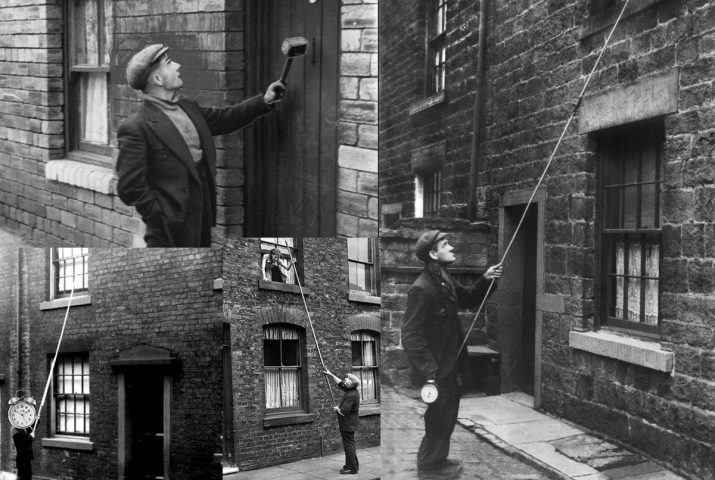
Chimney sweep
One of the most dangerous specialties, which, fortunately, is no longer in demand. Chimney sweeps worked in cities with a stove type of heating - they provided residents with fire safety, but at the same time caused serious damage to their health... The duties of the representatives of the craft included cleaning the fireplaces and chimneys from the accumulation of ash and soot.
Due to the cramped and narrow structure of the canals, very young boys were attracted to work, mainly at the age of 5–7 years. The work was hazardous to health - the organisms of children were quickly contaminated, and this led to the so-called cancer of the chimney sweeps. Medicine in those days was not yet sufficiently developed to prove the danger of a specialty. But after the carcinogenic effect of soot on chimney sweeps was calculated, the age of the employees was raised first to 8, and then to 16 years.
Modern heating systems and innovative cleaning technologies guarantee fire safety for the population, so children no longer need to sacrifice their health.
Telephone operator
Before automatic telephone exchanges were invented, subscribers were connected manually. Not everyone was hired for such work - mostly girls with good health, a pleasant voice and a calm character worked at the stations. In addition, due to the peculiarities of the mechanism, a very important factor for employment as a telephone operator was the high growth of the fair sex.
The essence of the work was to sit in front of a special board with switches and connect the necessary lines to each other during the call. The profession demanded the utmost attention and responsibility of the girls, because they had no more than 8 seconds for a manual connection, otherwise the call would be dropped. The boards were quite high, and it often happened that before the switches you had to reach high up, which is why candidates with high growth and long arms were chosen.
The specialty of a telephone operator remained until the end of the 70s of the last century, so long she lived because the manual connection system continued to be used for international communication until the last.
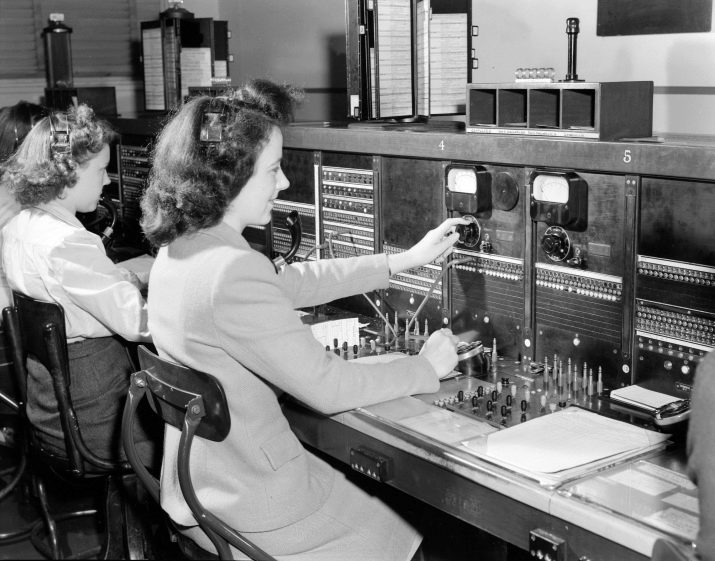
Milkman
Surely in movies or books, each of you met a description of this profession, because until the middle of the 20th century it was an important part of city life. Fresh milk was brought to customers' homes, schools and catering facilities every morning.
The milkmen delivered the product on motorcycles, cars or special carts, and sometimes manufacturers sold their products directly on the street. Such an occupation was found mainly in Europe and completely disappeared when the mass production of household refrigeration devices began. Also the decline in popularity of the profession was greatly influenced by the invention of pasteurization and sealed bags for packaging milk.
Water carrier
The profession was in demand before a centralized drinking water delivery system was built. The duties of the water carrier were to fill a large barrel with clean drinking water from a source closest to the city. Then the liquid had to be brought to the city - there people paid money to the worker and took water from the barrel into their containers. For an additional fee, the water carrier could carry the containers of consumers to their home - this was very convenient for those who could not or did not want to carry it on their own.
The installation of water pipes in every home has completely supplanted the profession. In the 1850s, quite a lot of water carriers still operated on the territory of St. Petersburg, which, with the help of buckets, delivered water to the residents of the apartments. But the number of water pumping stations has been increasing all the time, so the profession of a water carrier has completely disappeared from the list of in-demand professions.
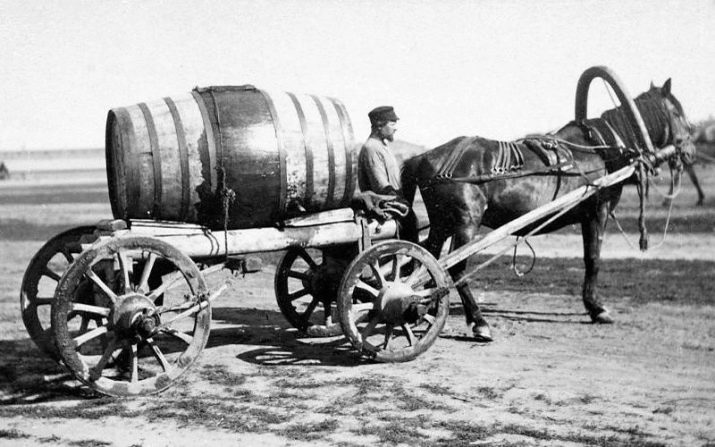
Wood rafting
This activity was very dangerous and took many of the lives of the brave workers. The specialty was complex from the beginning of the process to the very end - the raftsmen performed the work that they now carry out by means of trucks and trains.
In those days, collecting wood building materials looked very different than now. The process began in the winter. At first, the men cut down the required amount of forest, then they put the logs in the frozen river bed and tied them together. With the arrival of spring, the ice gradually melted, and the time came for the next stage of work - representatives of the stronger sex armed themselves with long strong sticks, then climbed onto an improvised raft made of logs or accompanied him along the coast.
The task of the rafters was to steer the wood in the right direction and clear the river bed of possible obstacles. Logs were specially harvested up the river bed from a city or village in order to use the current to deliver a heavy load.
The specialty completely disappeared at the beginning of the last century, when people began to actively use the railway.... Also at that time, portable sawmills were invented, which greatly simplified the process of extracting raw materials.
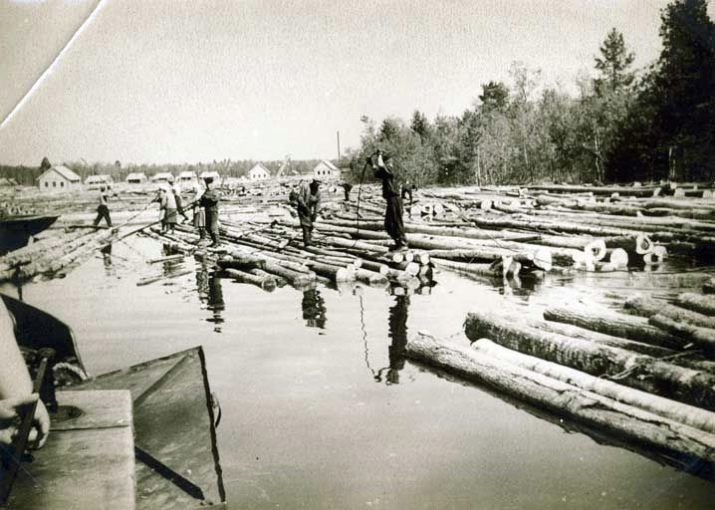
Other
The list of obsolete professions is very long, it can be continued for quite a long time.... Consider a few particularly interesting but disappeared activities.
- Pinsetter... This activity involves setting up and collecting pins on the bowling alley and returning the bowling ball to the players. Young boys worked as pinsetters, because the profession allowed part-time work, but the earnings were relatively small. Nowadays, bowling pins are set up by automatic systems, and the same goes for the delivery of balls. From old memory, the mechanism for setting the posts is called Pinsetter.
- Lecturer at the enterprise. Another unusual profession that existed during a short period of the technological revolution. The work in factories was very monotonous and tedious, so employees raised money and hired someone to read aloud entertaining texts from newspapers and magazines. But after 10 years, many politicians began to use the services of readers - they distributed their advertisements through them. Entrepreneurs did not like this trend, and soon after that the place of lecturers was completely taken over by radios.
- Calculator... Over the past few decades, technological progress has been advancing ever faster, forcing old occupations to disappear without a trace.So it happened with the specialty of a calculator - at one time, representatives of this profession independently solved large and complex mathematical problems. Mostly professionals worked in a team, so the work progressed in parallel. But even in a large company, human computing couldn't compete with the speed of a computer.

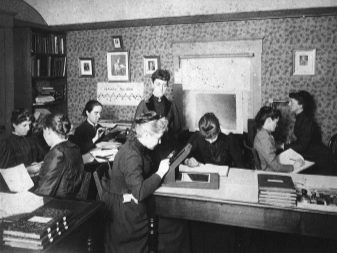
Endangered specialties
The rapid development of automatic electronic systems foreshadows the disappearance of many profiles by the end of the 21st century. The development of information spheres in Russia and around the world raises a logical question among people about which professions will die out in the near future. Therefore, we will consider specialties that are regarded as disappearing.
- Cashier... Already, many supermarkets, pharmacies and some fast food cafes are acquiring self-service cash registers. For payment in such terminals, bank cards or virtual wallets are usually used. In addition, there are programs for smartphones that allow you to scan the product code and pay for it online. POS terminals have not yet completely replaced cashier services, but progress shows that this is likely to happen by about 2030.
- Farmer... Technological progress simplifies the work of farmers as much as possible, already today their activities are automated using a variety of devices. Due to the use of mechanisms, enterprises have a reduced need for human resources. Entrepreneurs can limit themselves to the content of one specialist who will monitor the state of automated machines. Accordingly, the cost of production will be significantly lower, because the enterprise does not need to pay wages to workers.
- Dispatcher... In the modern world, a large number of programs are invented to simplify life. Among them there are applications with which people can call a taxi on their own, choose a route and pay the bill online. This innovation will affect only dispatchers - programs are not able to replace operators.
- Accountant... Currently, most of the accounting work can be performed by special programs and automated systems. Soon companies will appreciate the positive characteristics of the prescribed algorithms for calculating, and then the specialty "accountant" can be attributed to the list of dying.
- Bank employee... Modern technologies have transferred most of the services of bank employees to special applications, namely the responsibilities of operators, consultants and loan officers. It is likely that in the future, these three specialties will not compete with the programs. Online assistant services are much more mobile and convenient for clients, as well as more profitable for banks.
- Employee of paper newspapers and magazines. Just a couple of decades ago on the street it was easy to meet a person reading the news in the fresh morning newspaper. But now this method of disseminating information is gradually becoming obsolete and becoming unnecessary - the public can read electronic news right after the release, but printed articles are published every few days. Former journalists and editors can easily retrain into more modern professions such as copywriters, content managers or social media account managers.
- Travel agent... An increasing number of entrepreneurs in the travel business find clients using Internet sites, without paying extra for the work of agents. The same thing happens on the part of the consumer - travelers prefer to plan their own route, look for accommodation and book tickets, because the search system is constantly being improved and supplemented with new services. Therefore, the travel agency will be in demand only among wealthy clients.











